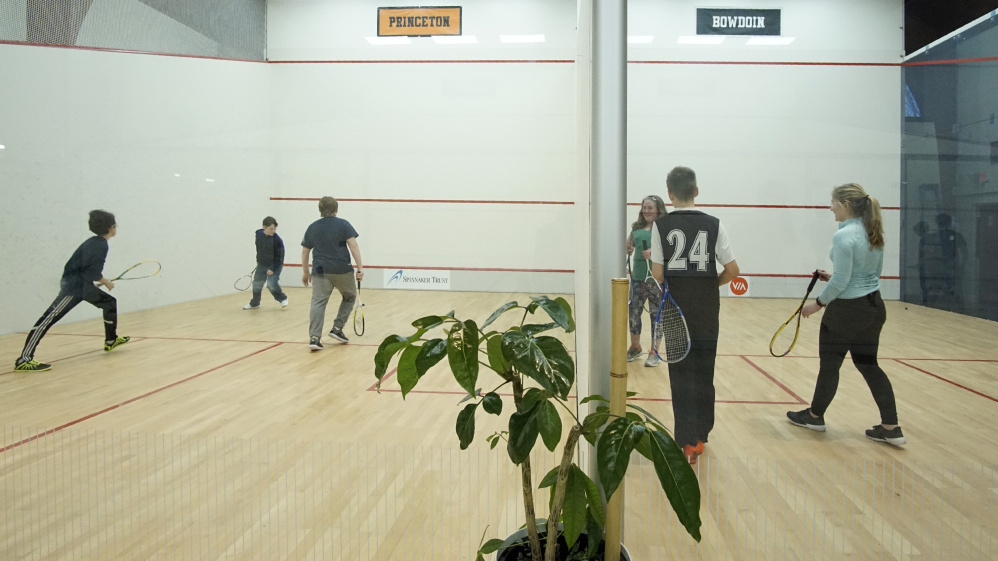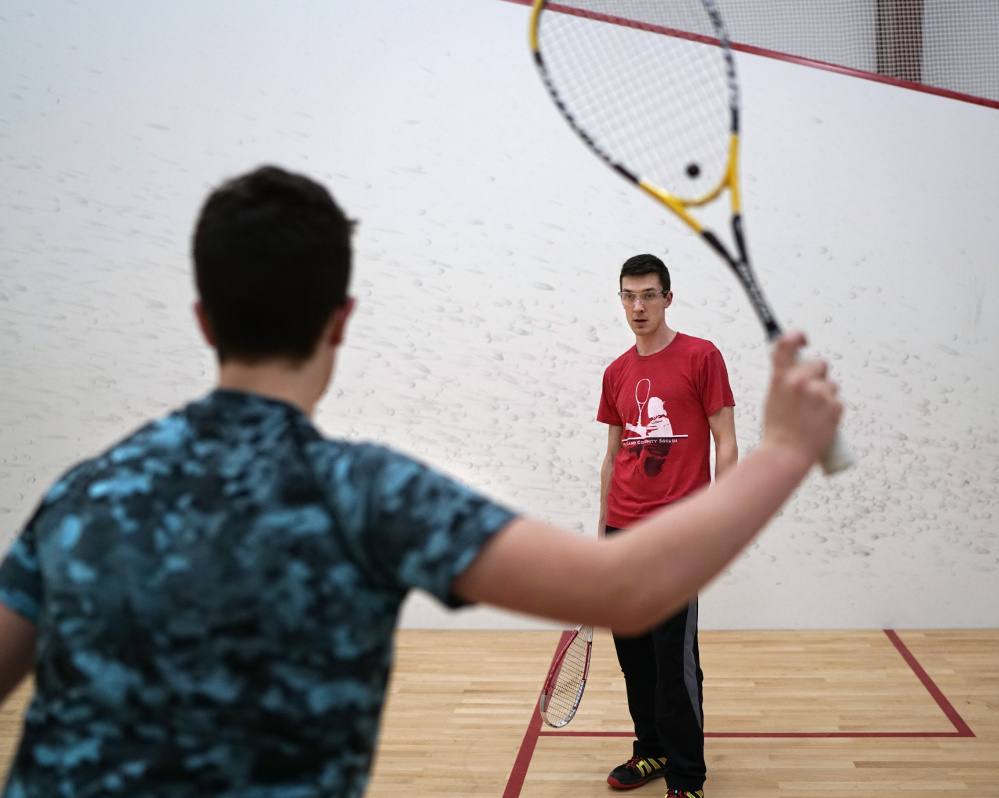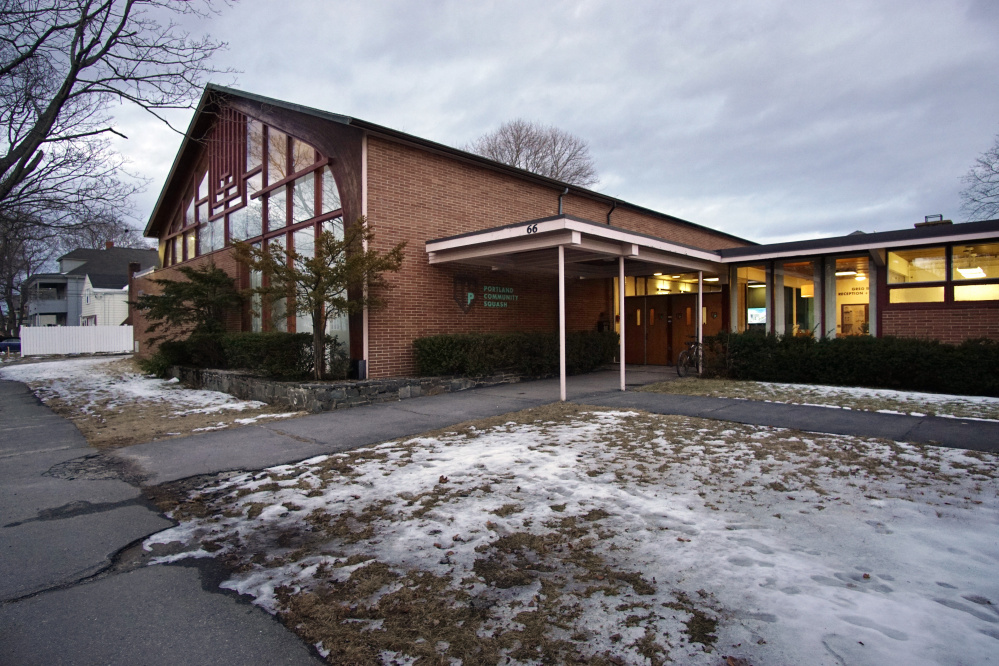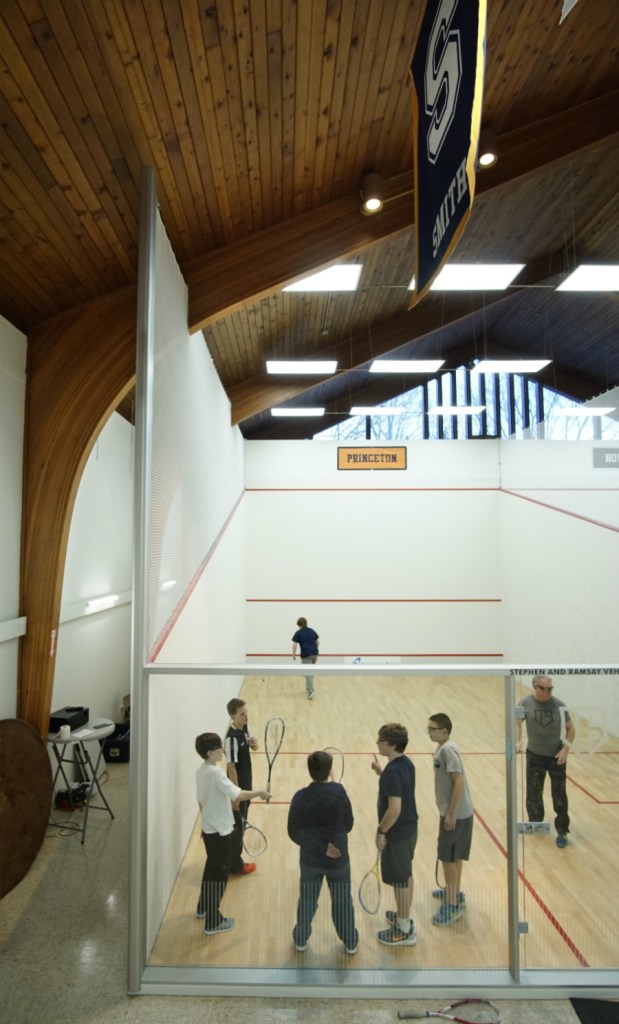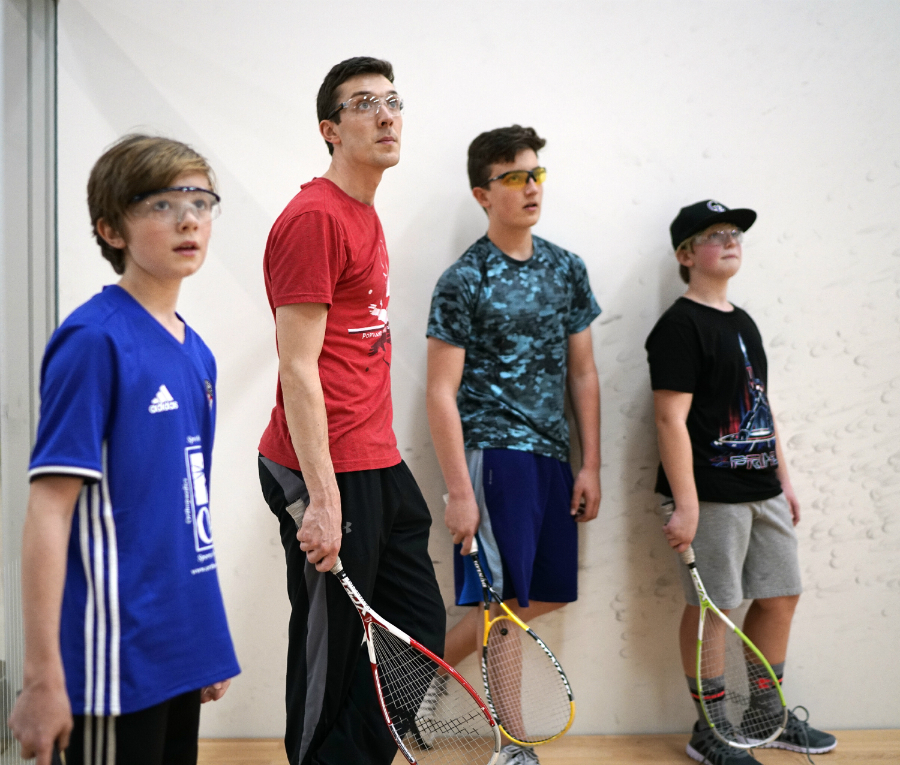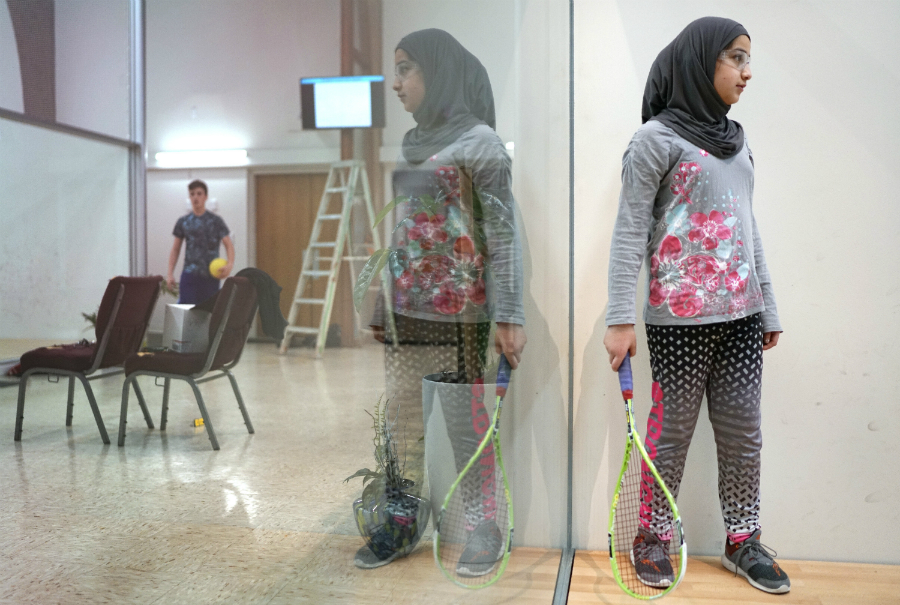Almost as soon as Portland Community Squash formed in 2013, demand for court space exceeded what the four nonregulation public courts at the Portland YMCA could meet.
With no other public squash courts in southern Maine, the nonprofit group set out to build its own.
After several failed attempts to lease space as part of a larger development, Portland Community Squash decided it needed to own its own property. It raised nearly $1.5 million in less than a year to buy and convert the former Congregation Shaarey Tphiloh Synagogue at 66 Noyes St. into a new facility dedicated to squash. The venue will have its grand opening Wednesday, with a ceremony scheduled for 1 p.m.
“We always knew this had to happen in order for the sport to grow in Maine,” said Barrett Takesian, 26, the executive director of Portland Community Squash. “The clear catalyst was the need for regulation courts with broad access to the public. The problem for the game has always been access. It’s not a problem of demand.”
Participation in squash, once a sport associated with elite clubs and private schools, has risen rapidly in the United States over the past decade as US Squash has prioritized bringing the sport to urban centers and drawing a younger, diverse group of players.
The number of squash players in the United States increased 101 percent between 2009 and 2014 to 1.6 million players, according to the Sports & Fitness Association. That growth is fueled by a 400 percent increase in junior player participation since 2007, according to US Squash.
Portland Community Squash already has 132 adult members and 50 youth players registered to use the four regulation-sized courts installed in the high-ceilinged sanctuary of the former synagogue. Players began using the facility in mid-January.
Takesian said at its peak, the YMCA was being used by 200 adult squash players and 106 youth players, but it had reached a “saturation point,” especially since only two of the Y’s courts are close to regulation size.
“Membership had become less desirable when each new member made it more and more difficult to get on a court,” Takesian said.
Portland Community Squash plans to cap its adult membership at 200 and expand its youth programs to 120 participants by the end of the year. It will also continue to work with the YMCA to accommodate league play and the youth programs.
An adult membership to PCS costs $73 per month, or $113 per month for a family membership. Nonmembers are welcome to play for a “drop-in” fee.

Portland Community Squash will hold a grand opening ceremony at 66 Noyes St. at 1 p.m. Wednesday. So far, 132 adult members and 50 youths are registered to use four courts.
“Once we hit 200 (members), all of the overhead and essential staff will be break-even,” Takesian said. “Then the continued fundraising we’re doing goes toward the growth of the junior squash league and our urban squash program, Rally Portland.”
The youth programs are a vital component to Portland Community Squash’s business model.
“The mission of PCS is to unite all of Portland’s diverse communities and create opportunities,” Takesian said, adding first-generation college seekers are a target demographic.
Portland Community Squash has modeled its Rally Portland program, for students in grades 6-12, after US Squash’s National Urban Squash Education Association, which introduces squash to new players while providing academic support, mentoring and help with college placement. Similarly, Portland Community Squash youth sessions include equal amounts of squash, educational assistance and fitness.
Last week, Maryam Alhamdany, an 11-year-old sixth-grader at Lyman Moore Middle School, was playing squash at the center for her second time.
“It’s a fun sport. You get to run around and it’s an active sport,” she said. “It’s fun here because we do yoga and (in the classroom) we write down our fears on paper and then we tear them up so we can forget about it.”
Portland Community Squash’s fundraising theme is called The Alma Matters Campaign. In the squash room, 16 college banners representing several colleges and universities hang from the ceiling.
“We stay with them from the sixth to the 12th grade and every single day we’re talking about college and what it takes to get there,” Takesian said.
Lincoln Middle School seventh-grader Tatreaux Sokol, 12, is a two-year veteran of the youth program.
“I was glad I was able to be one of the first people in the program,” Tatreaux said. “I’ve been able to see the evolution of this section of PCS life.”
“I’m not a huge fan of the yoga, but I think the 45-minute fitness period is good. It’s good for everyday life. The classroom work is good. To have that time is nice because it frees up my evenings. It’s a good balance.”
It wasn’t long after a proposed second-floor squash facility as part of the Bayside Bowl expansion was scrapped that the squash group came to the conclusion it needed to own its own facility.
The first site it viewed was the Shaarey Tphiloh synagogue, put on the market for $1.2 million. The congregation’s declining size had made remaining in the building unsustainable.
Marilu Fortson, Portland Community Squash’s co-squash director, wondered if a place of worship could be converted into a squash center.
“Then you saw the light come in the windows and saw the high ceilings and you start to visualize,” Fortson said. “There is a special energy here.”
Send questions/comments to the editors.


